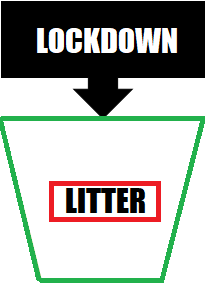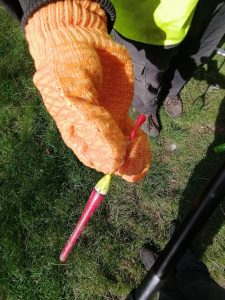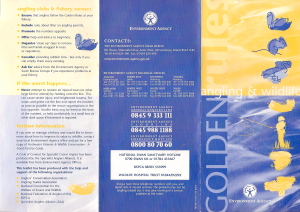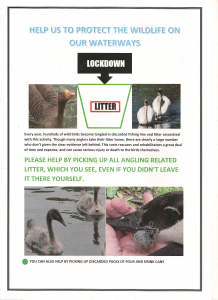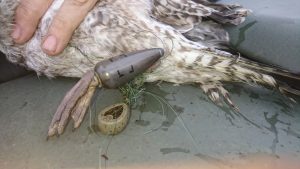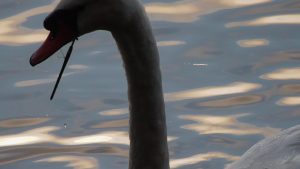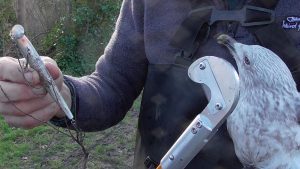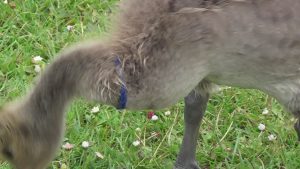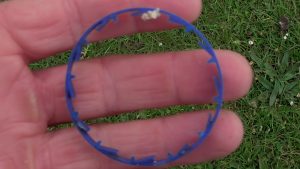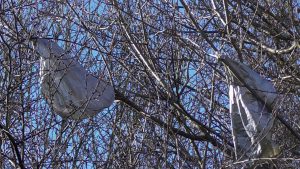Litter in many forms directly threatens nature reserves like Sheepwash. Nothing could be more selfish than throwing away discarded rubbish that can harm wild animals and birds, as well as pets. The biggest source of threat to wildfowl remains discarded fishing line and associated rubbish. Some people continue to ignore local guidance and respect for the environment, and unfortunately authorities continue to fail to put a stop to anti social behaviour that this “sport” appears to be symbiotic with.
The Environment Agency put forward a “Golden Rules” for fishing some years ago, and we endorse it.
We have been actively involved in wildlife rescue for many years at the site and also support the work of Wychbold Swan Rescue and Linjoy Wildlife Sanctuary, and successfully applied via a Sandwell council grant to buy rescue equipment.
The campaign leaflet produced by Swanwatch and Scared Animal wildlife Rescue summarises four main rules, these being
- USE BARBLESS HOOKS ONLY
- DO NOT USE FLOATING BAITS, WHICH WILL ATTRACT FEEDING WILDFOWL
- NEVER LEAVE RODS UNATTENDED OR ON THE BANKSIDE STILL BAITED
- REMOVE OR REPORT LOST TACKLE, PARTICULARLY ON TREES, ISLANDS OR BANKSIDE VEGETATION TO THE LOCAL AUTHORITY OR WATER OWNER AND HELP US TO LOCKDOWN LITTER SO THAT IT NEVER HARMS WILDLIFE.
A PDF VERSION OF THE ABOVE CAN BE DOWNLOADED BELOW.
lockdown litter leaflet
Some examples of rescued tackled birds on Sheepwash are shown below.
And one that was not so lucky……
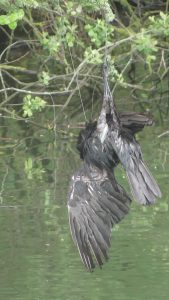
A dead bird hanging up in trees from lost fishing tackle
There are other forms of litter such as plastic packs of four and plastic rings which also get caught around beaks or necks like the ones below. If you see any of these lying around on the floor, please cut them up to prevent this situation.
We also fully support the RSPCA and other wildlife and environmental organisations who are opposed to mass balloon releases for celebrations and bereavements. The person is not there, and the balloons do not go to heaven. They fall to earth and kill wildlife and risk harm to farm animals as well. Some balloons that came back to land below have been caught in the trees on Sheepwash, and are impossible to reach.

